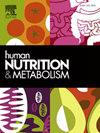Allium cepa L. as a natural antioxidant: Its efficacy in combating heat stress-induced physiological alterations
IF 1.8
Q3 ENDOCRINOLOGY & METABOLISM
引用次数: 0
Abstract
Heat stress (HS) is a major physiological stressor that induces oxidative damage, inflammation, and metabolic disruptions, all of which cause harm to health. This study investigates the potential protective effects of Allium cepa L. (AC), against the physiological alterations brought on by HS. Twenty male rats were utilized in this study and divided into 4 groups: Control, HS, AC, and HS + AC. Rats were exposed to 38–39 °C for 2 h each day for three weeks to induce HS while 1.0 ml/100 g body weight of ethanolic extract of AC was administered orally for three weeks. Hematological parameters, inflammatory markers, and lipid profiles were analyzed using blood samples obtained through heart puncture.
The findings demonstrated that HS significantly lowered levels of hemoglobin (HB), red blood cell (RBC) counts, and antioxidant enzyme activity. However, there was a significant rise in the levels of inflammatory markers, platelet counts, LDL-c triglyceride (TG), total cholesterol (TC), and white blood cell (WBC). Many of these alterations were reversed by AC supplementation, by increasing RBC counts, HB levels, and antioxidant enzyme activities while decreasing LDL-c, TG and TC, MDA, and TNF-α (tumor necrosis factor-α). However, the positive benefits of AC were partially diminished in the HS + AC group, perhaps due to the severe oxidative stress caused by heat stress (HS).
This study highlights the probable potential of AC as a natural antioxidant in modifying heat stress-induced oxidative damage, hematological changes, and lipid metabolism disruptions; however, its protective effects are insufficient to mitigate heat stress. Therefore, further research is required to explore the other possible underlying mechanisms.
葱属植物作为一种天然抗氧化剂:其对抗热应激引起的生理变化的功效
热应激(HS)是一种主要的生理应激源,可引起氧化损伤、炎症和代谢紊乱,所有这些都会对健康造成危害。本研究探讨了葱属植物(Allium cepa L., AC)对HS引起的生理变化的潜在保护作用。本研究选用雄性大鼠20只,分为对照组、HS组、AC组和HS + AC组。将大鼠置于38 ~ 39℃环境下,每天2 h,连续3周诱导HS,同时口服AC乙醇提取物1.0 ml/100 g体重,连续3周。通过心脏穿刺获得的血液样本分析血液学参数、炎症标志物和脂质谱。结果表明,HS显著降低血红蛋白(HB)水平、红细胞(RBC)计数和抗氧化酶活性。然而,炎症标志物、血小板计数、LDL-c甘油三酯(TG)、总胆固醇(TC)和白细胞(WBC)水平显著升高。通过补充AC,通过增加红细胞计数、HB水平和抗氧化酶活性,同时降低LDL-c、TG和TC、MDA和TNF-α(肿瘤坏死因子-α),许多这些改变被逆转。然而,在HS + AC组中,AC的积极作用部分减弱,这可能是由于热应激(HS)引起的严重氧化应激。这项研究强调了AC作为一种天然抗氧化剂在改善热应激诱导的氧化损伤、血液学变化和脂质代谢中断方面的可能潜力;然而,它的保护作用不足以减轻热应激。因此,需要进一步的研究来探索其他可能的潜在机制。
本文章由计算机程序翻译,如有差异,请以英文原文为准。
求助全文
约1分钟内获得全文
求助全文
来源期刊

Human Nutrition and Metabolism
Agricultural and Biological Sciences-Food Science
CiteScore
1.50
自引率
0.00%
发文量
30
审稿时长
188 days
 求助内容:
求助内容: 应助结果提醒方式:
应助结果提醒方式:


